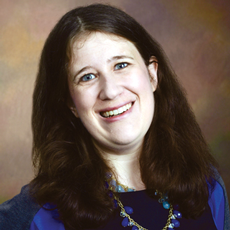
One of the most common complaints I hear about long-term care is the lack of research, ranging from wound care to quality of life to mental health
That’s why it’s exciting to have two McKnight’s Women of Distinction Rising Stars who are academic researchers. Both Tabassum Majid, Ph.D., and Christine Ulbricht, Ph.D., will be honored May 16 in Chicago at the Women of Distinction ceremony. (Follow updates with #McKnightsWOD.)
Make no mistake: The pair aren’t looking at the data in a vacuum, but rather are actively pursuing ways to make life better for nursing home residents. And a personal connection is what sparked them forward.

Tabassum Majid, Ph.D., the executive director of the Integrace Institute in Maryland, was inspired by her grandparents, who lived with her family growing up. By the time she was in middle school, Majid would come home and help her grandmother, who had dementia. Later, Majid and her mother would visit elder family members around the world.
“That was an integrational bond,” she told me. “We often find in the aging industry people who have had a good experience with grandparents or older adults from a young age.”
Today, her accomplishments include the institute developing a nationally-recognized, community-based, participatory model of research in senior living, while also being a subject matter expert on Alzheimer’s disease. Majid is dedicated to educating families and professionals supporting those living with neurocognitive disorders. More than 1,000 people attend the Institute’s educational events throughout Maryland each year, where she shares the latest research findings to help families.

In the case of Christine Ulbricht, Ph.D., an assistant professor at the University of Massachusetts Medical School, inspiration came from her uncle. A Vietnam War veteran with post-traumatic stress disorder, he struggled, and Ulbricht said she learned how psychiatric and mental health needs can exist across one’s lifespan.
Eventually, she began to focus her work on older adults in long-term care facilities who are in need of psychiatric services. Her NIH-backed research has included evaluating suicide risk in residents, a study that looks at working-age adults with mental illness living in nursing homes, and another that looks at how depression and antidepressant treatment effects differ by level of cognitive impairment.
For nursing home residents, “We are only beginning to understand the unmet need,” she told me.
Despite the number of women in aging services, men often dominate leadership roles, and the life of an academic research is rife with challenges. But both Majid and Ulbricht are optimistic when they talk to younger women.
“One of the things that my grandmother always said was, ‘Don’t give up on your dream,’” Majid said. “Find a good mentor: You have to be active and seek them. Make sure you have people in your cheering section. And don’t be afraid to be the voice in the room that is different.”
Ulbricht agreed, noting it’s important to “be persistent and true to your interests.” At the same time, she wouldn’t have known five years ago of the need to study nursing home psychiatric services specifically. An academic career can “go places you didn’t expect,” she added.
What’s exciting about their work is that it has a real possibility of not only inspiring future researchers but also may benefit residents in your facilities sooner rather than later. That’s worth raising a glass to. And while both Majid’s grandmother and Ulbricht’s uncle have died, their legacy lives on in the research of their kin.
McKnight’s Women of Distinction thanks Platinum sponsor PointClickCare and Gold sponsor SimplyConnect for their support during the inaugural year of the program.
Follow Senior Editor Elizabeth Newman @TigerELN.



